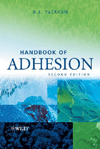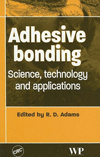Dow India Signs Agreement with Glass Wall Systems

Signaling a shared commitment towards carbon neutrality, Dow Chemical International Private Limited (Dow India) and Glass Wall Systems India signed an agreement for the supply of DOWSIL™ Facade Sealants from Dow's Decarbia™ portfolio of reduced-carbon solutions. Dow will provide its DOWSIL Facade Sealants for Glass Wall System's curtain wall system.
The collaboration demonstrates an unwavering dedication from organizations in the building and infrastructure industry to reduce embodied carbon in building materials. Dow's carbon-neutral silicone sealants for building façades, verified through PAS 2060 Standard [1], have the unique advantage of a lower embodied carbon footprint due to Dow's investments in the decarbonization of its silicon metal assets in Brazil.
"Silicone sealants used in façades are already known for their positive contribution to lowering the operating carbon emissions coming from the cooling and heating of buildings, as they provide durable bonding in insulated prefabricated façade elements," said Jean-Paul Hautekeer, global marketing director for Building & Infrastructure at Dow Consumer Solutions. "With this program, we are going one step further by eliminating their embedded carbon. We appreciate the shared vision and collaboration with Glass Wall Systems."
Glass Wall Systems can achieve carbon neutrality through the use of DOWSIL 983 Structural Glazing Sealant and DOWSIL 791 Weatherproofing Sealant. The carbon neutrality, following PAS 2060, was achieved by the responsible sourcing of low-carbon feedstocks, Dow's actions to reduce carbon emissions in the manufacturing process, the use of renewable energy sources, and compensation of the remaining emissions.
Aligned with the Decarbia portfolio, the DOWSIL carbon neutral silicone service for building façades from Dow supports green-building design initiatives, enhances façade sustainability, and can improve green-building ratings across the construction industry.
Learn more about Dow at www.dow.com.
[1] PAS 2060 Standard: the only internationally recognized, accepted and respected standard for carbon neutrality.
Looking for a reprint of this article?
From high-res PDFs to custom plaques, order your copy today!






